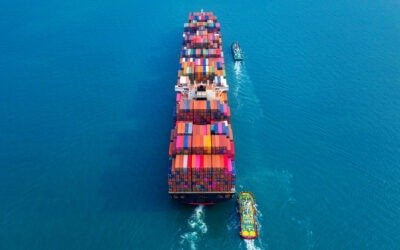Around 90,000 marine vessels carry out over 90% of the global trade through oceans. Ships, like all fossil fuel powered modes of transportation, emit carbon dioxide and, therefore, contribute considerably towards global emissions and climate change. More than 3% of the carbon dioxide emissions worldwide are caused by the shipping industry, which continues to grow rapidly to date [1]. If the global shipping industry were considered a country, it would be the sixth largest contributor of greenhouse gas emissions. Only the U.S., China, Russia, India, and Japan emit more CO2 than the entire global maritime fleet [1].




Shore to Ship Power Systems Service Overview
The research presented in this article is from PTR's Shore to Ship Power Systems market research. For information about this service please submit a request shown below.
Europe: +49-89-12250950
Americas: +1 408-604-0522
Japan: +81-80-7808-1378
GCC/Rest of APAC: +971-58-1602441
More About our: Shore to Ship Power Systems Market Research
Recent Insights
COP28’s Global Stocktake: A Pivotal Undertaking?
The global stocktake, a quinquennial undertaking, functions as a meticulous inventory of worldwide initiatives in climate action and support, with its inaugural culmination slated for COP28 in a bid to influence the ensuing round of nationally determined contributions...
COP28: Balancing Hope and Skepticism in Climate Talks
The Conference of the Parties (COP) is the primary decision-making body of the United Nations Framework Convention on Climate Change (UNFCCC). This annual gathering of member states focuses on addressing global climate change. In the lead up to COP28, amid the rising...
Achieving Net Neutrality: More European Countries to Rely on Shore-to-Ship Power
• European countries with high vessel traffic are increasingly moving towards electrification to reduce the emissions from the maritime sector. • The pace of deployment of shore-to-ship power systems is comparatively greater in Northern Europe; however, countries like...
OPS Installed Base in NAM & Europe
OPS installation is on the rise globally as countries prioritize their environmental objectives and seek to minimize the ecological impact of maritime activities. This progressive technology is reshaping port operations worldwide, with a growing number of nations...
Bridging the Gap Between OPS Installations and Vessel Traffic
• The environmental impact of maritime traffic is examined, focusing on the potential of shore-to-ship power systems to drive sustainability in the industry. • The disparity is unveiled by analyzing vessel traffic data and onshore power supply systems, highlighting...
Overview of the OPS Market in NAM & Europe
In response to the pressing need to combat maritime emissions and meet environmental targets, an increasing number of countries are embracing shore-to-ship power research solutions. This technology enables ships to connect to land-based power sources while docked,...
The Ecosystem behind Shore-To-Ship Power in Spain
Ports across Europe are aiming to achieve the decarbonization goals set by the EU’s “Fit for 55” target which requires ports to reduce their GHG emissions by 55% by 2030 and ultimately make the EU climate neutral by 2050. Globally, Europe is the leading market for...







